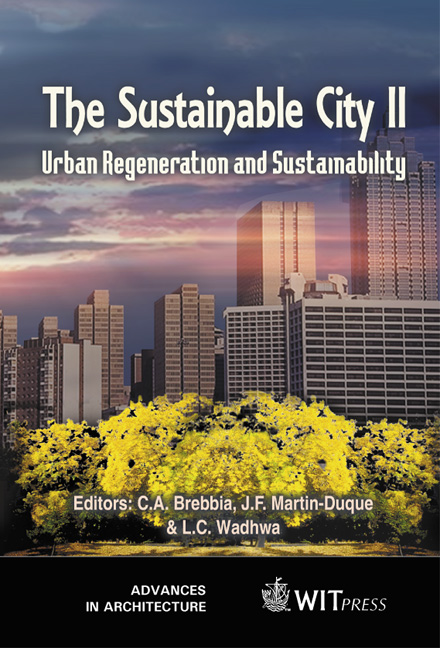Integrated Water Management As A Tool For Sustainable Urban Regeneration
Price
Free (open access)
Transaction
Volume
54
Pages
Published
2002
Size
856 kb
Paper DOI
10.2495/URS020121
Copyright
WIT Press
Author(s)
C Shirley-Smith
Abstract
Large cities are major and concentrated consumers of water. The majority of the water supplied to each city tends to be provided by a single water company who may, or more likely may not, be interested in reviewing and renovating its traditional methods of delivery of fresh water and its removal of waste water. Often, due to the scale of supply, the length of supply pipelines and sewers and the ingrained, traditional approach, innovative methods may be overlooked, ignored or indeed seen to work against the financial interests of the incumbent company. It is long overdue that the management of a city’s water and waste water requirements and systems are reviewed. In this period of great interest in the regeneration of cities and their ‘sustainability’, The Metropolitan Water Company (MWC) has been at the forefront of developing simple, practical, and integrated managed solutions within the context of both cities and their existing suppliers of water services. This is Integrated Water Management (IWM). Case studies and functioning examples of sustainability include ‘Green Cluster Supplies’ -an appropriate grade of water supplied ‘for the purpose’ -from a local borehole, common carriage supply, on-site water recycling, ‘green’ water, and a grey to green water roof recycling system specifically designed for water poor urban areas and for people less able to afford unlimited potable water. MWC can demonstrate that an appropriate mixture of traditional and renewable practices can optimise a city’s water use without sacrificing health, amenity or the economy and makes the case for IWM.
Keywords





